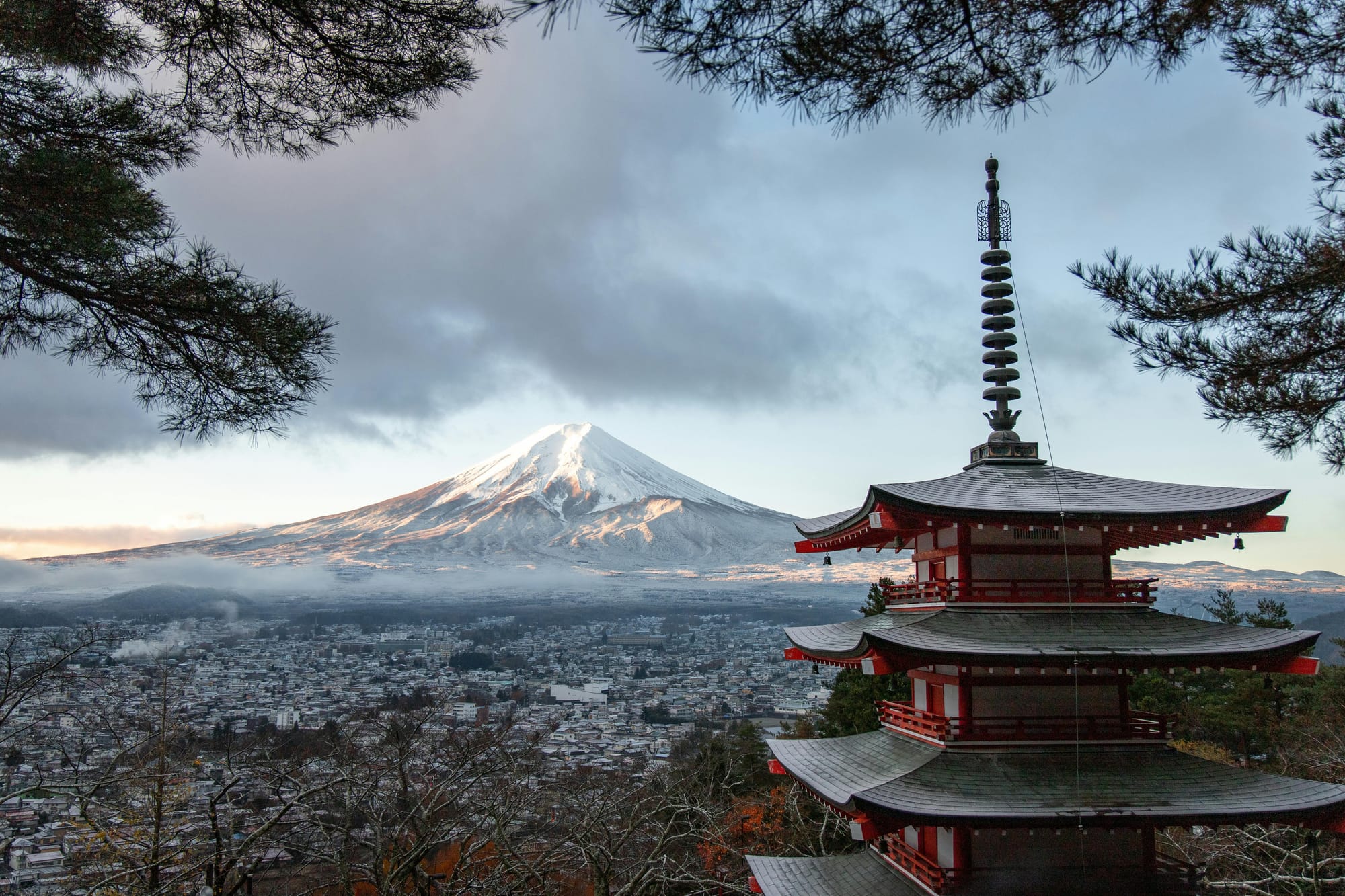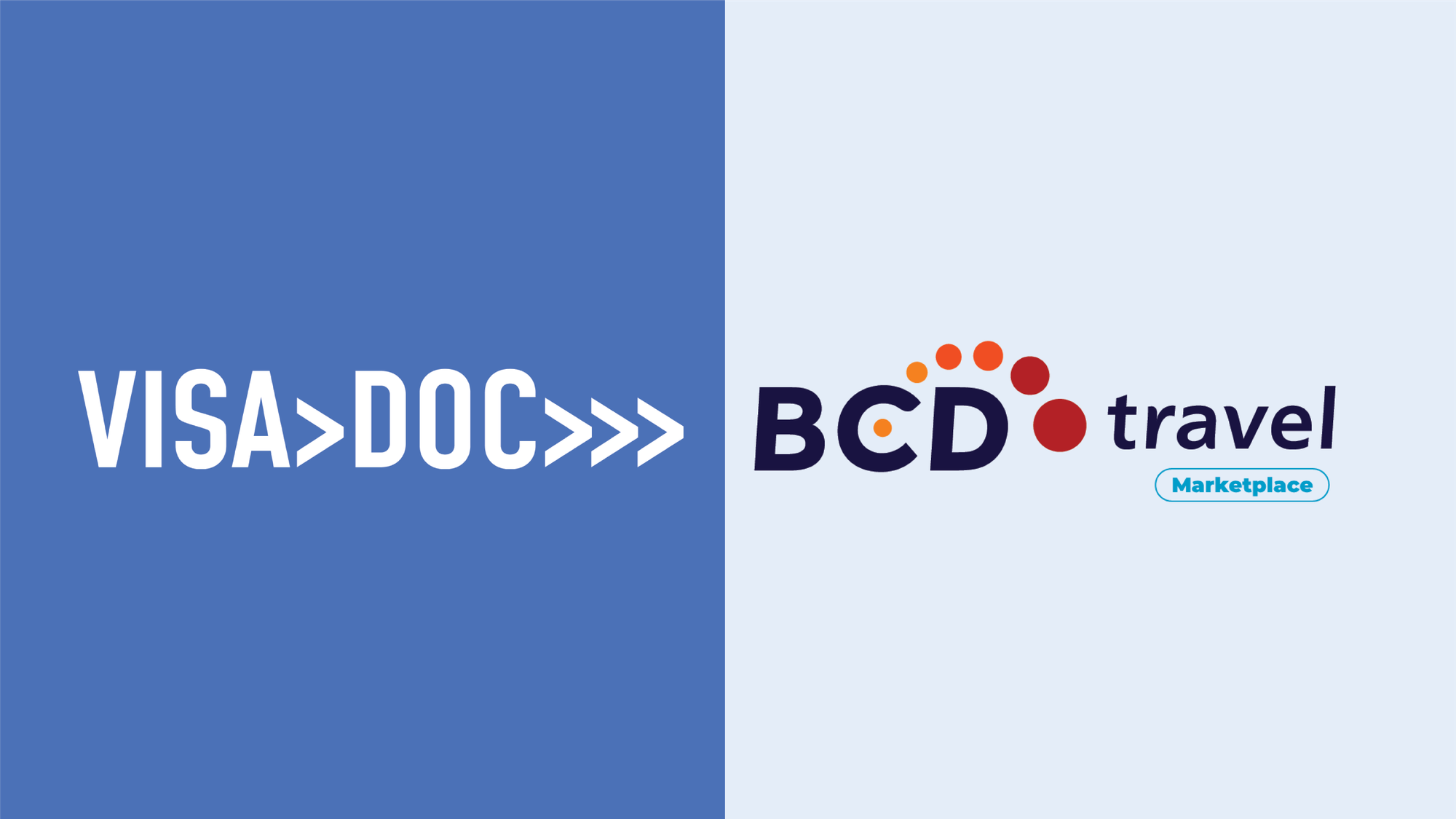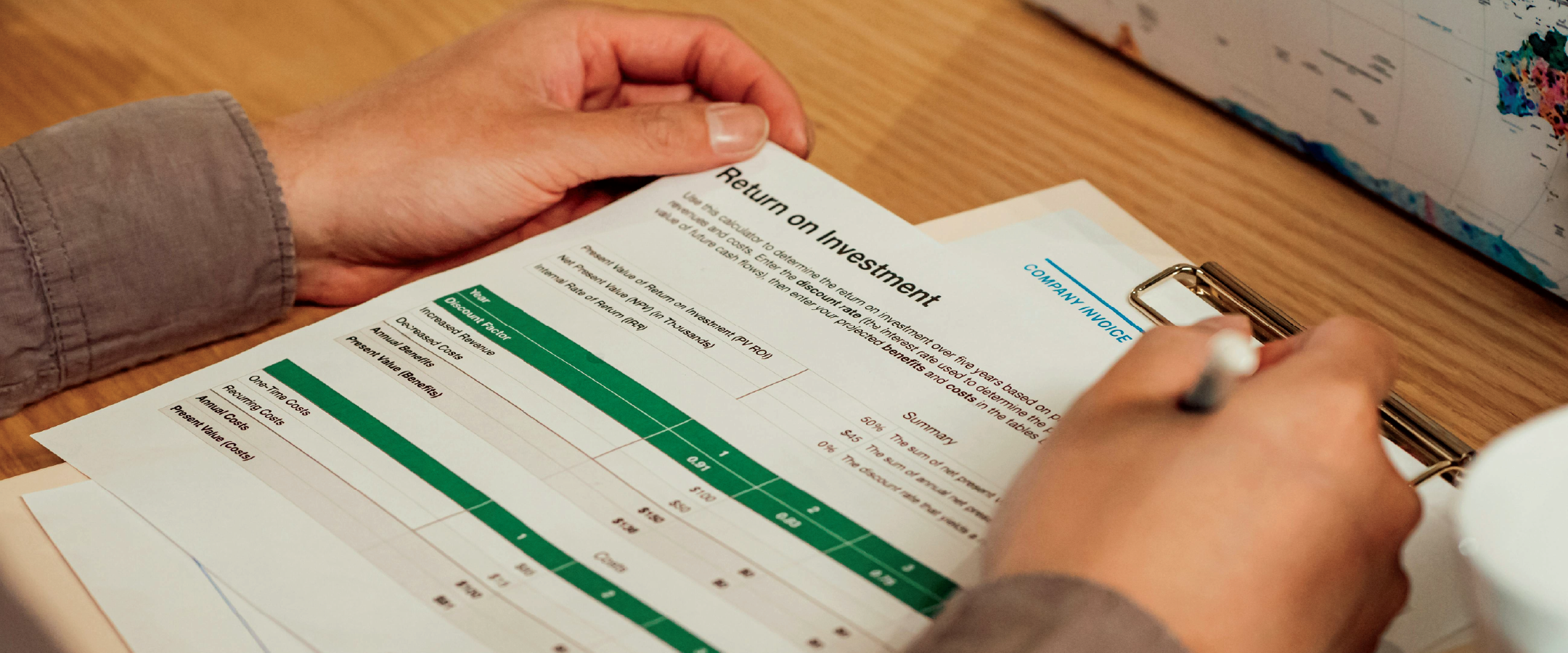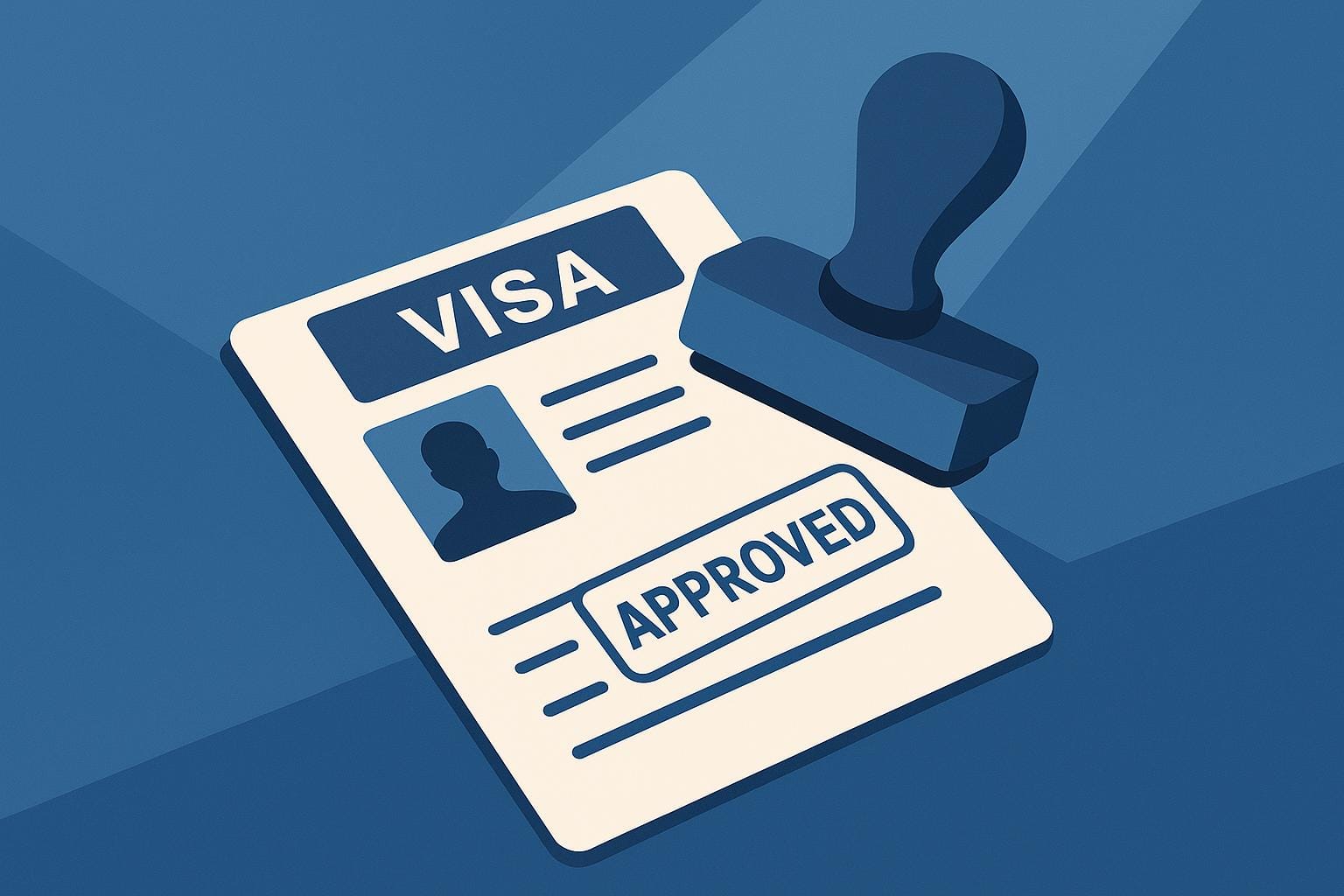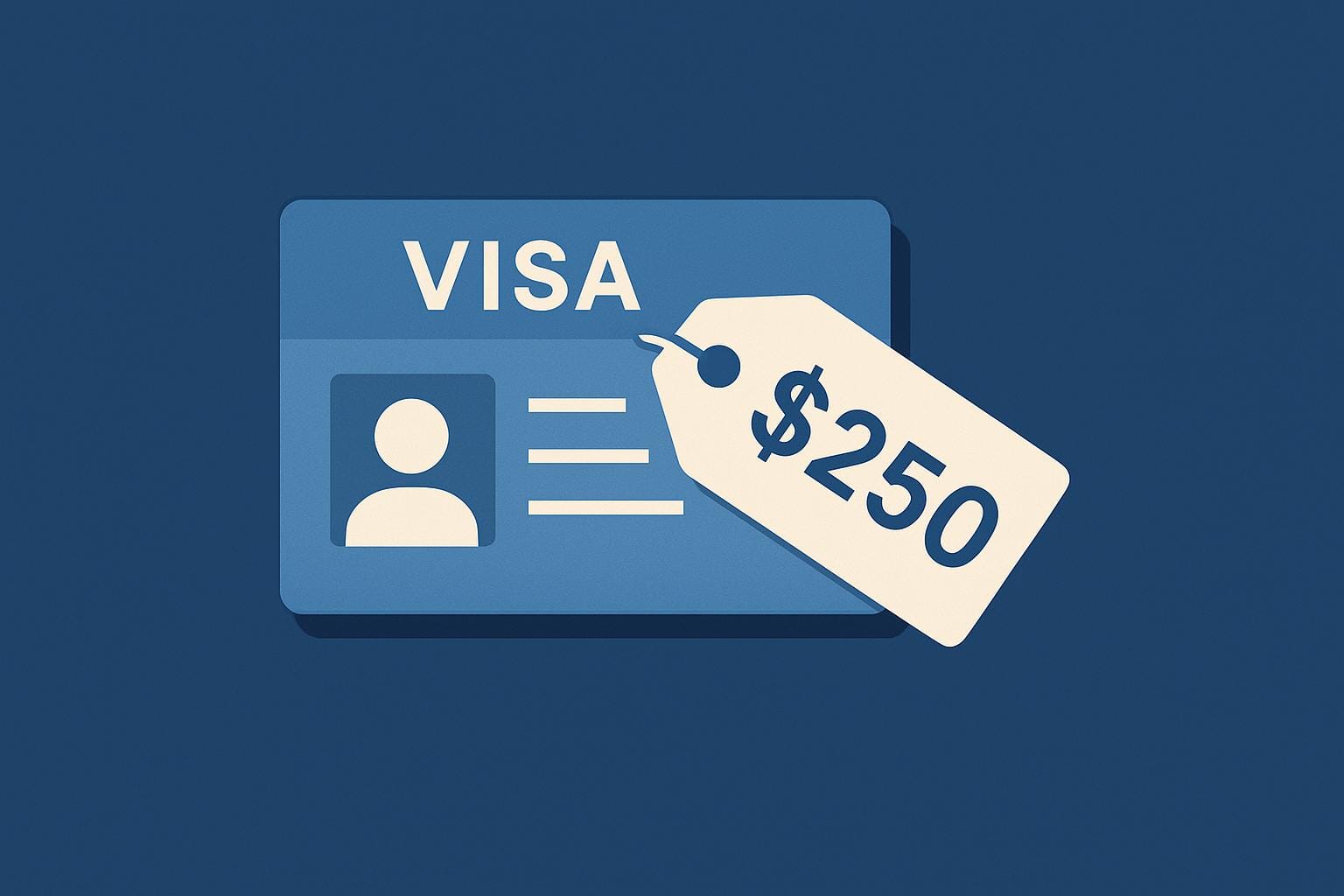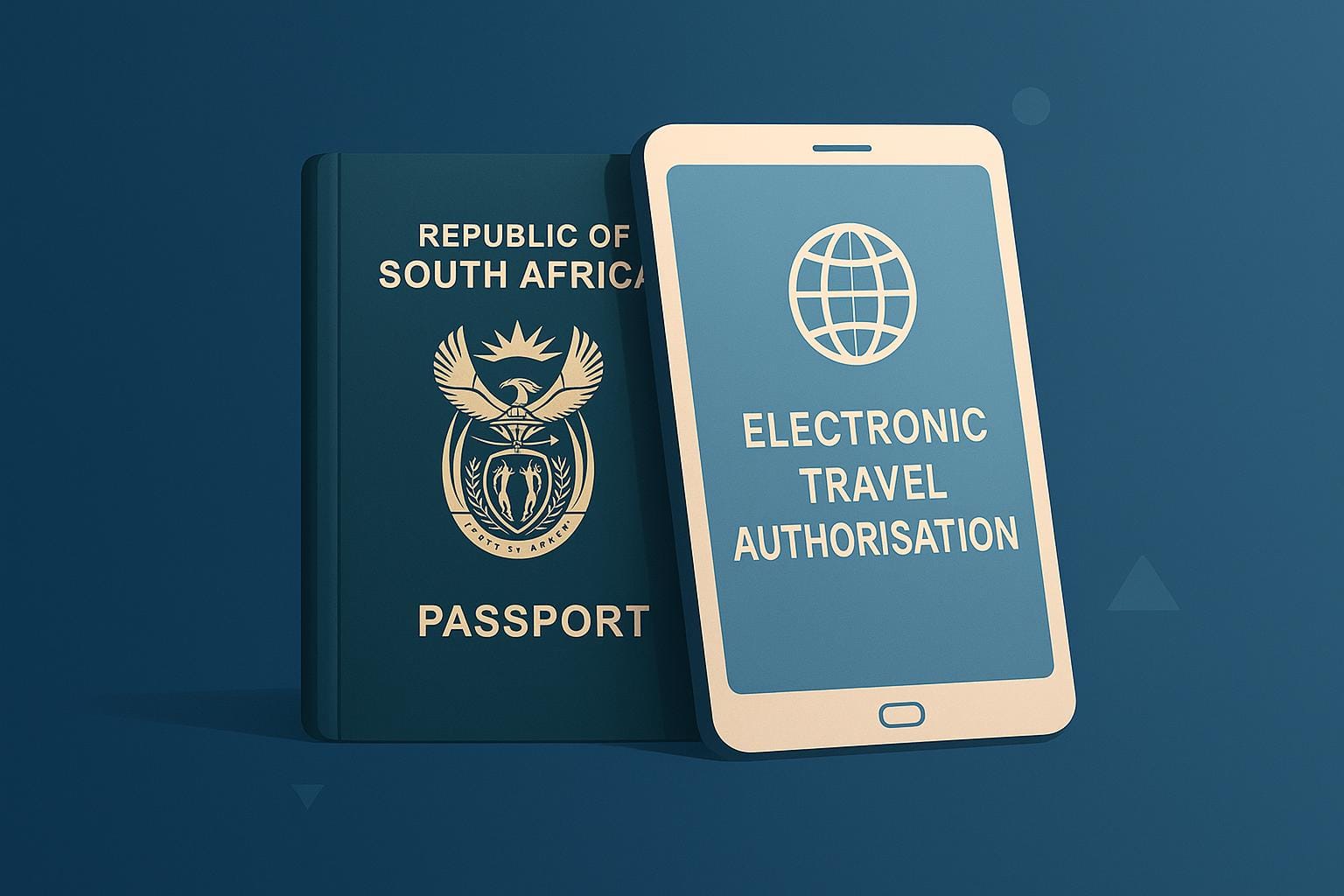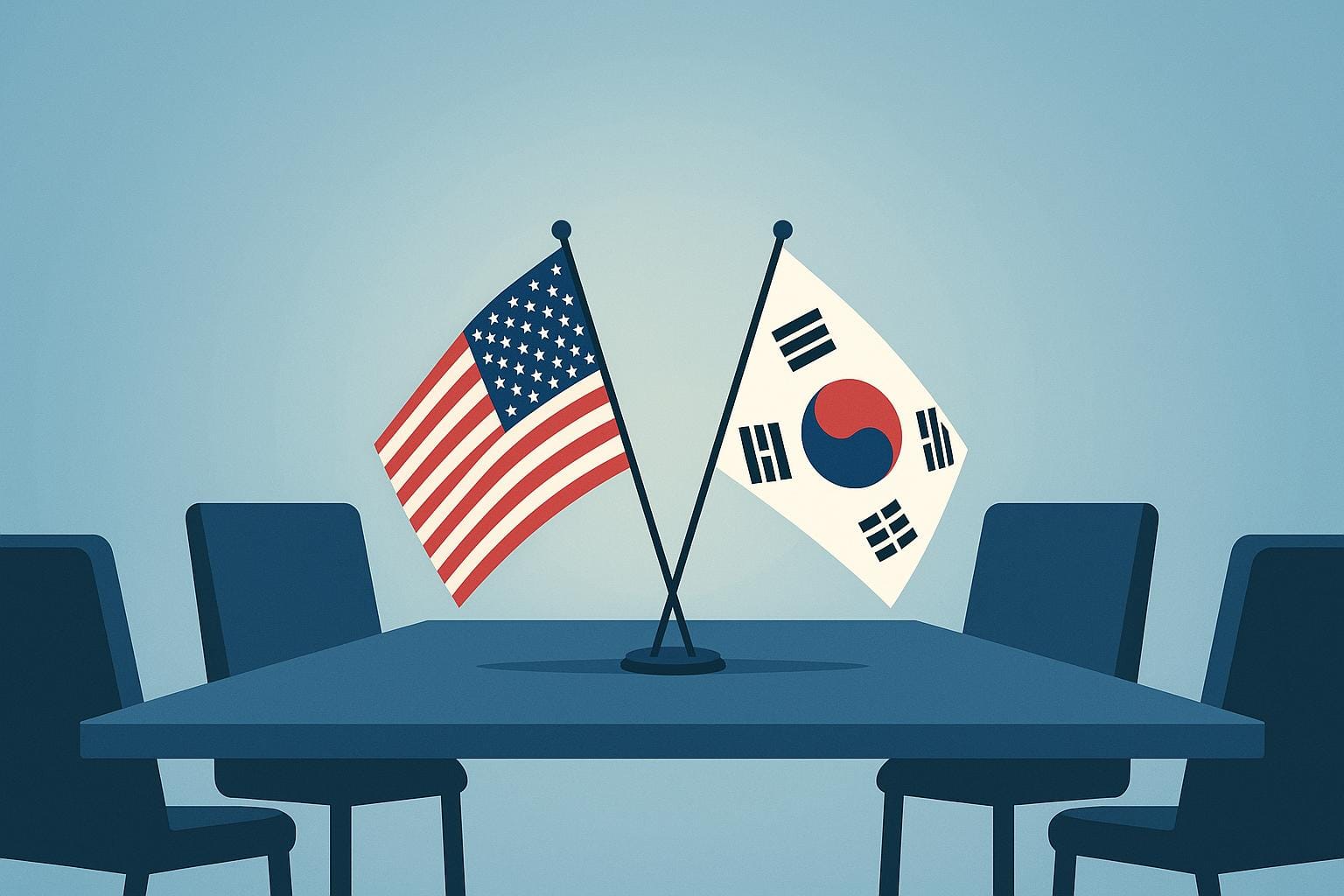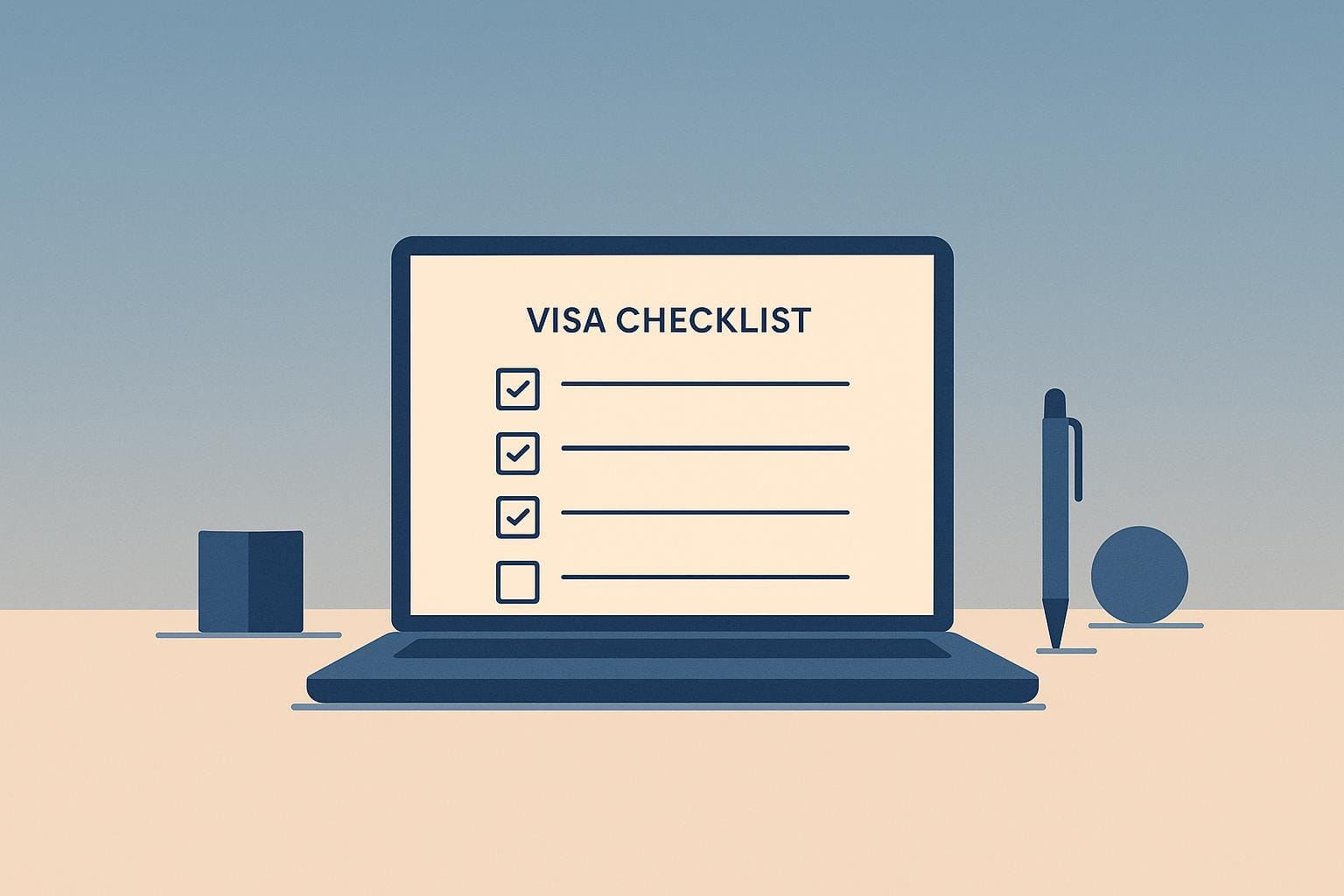Planning a market research trip to Japan? Here's what you need to know about short-term business visas:
- Visa Purpose: For activities like market research, business consultations, and contract negotiations (no paid work or profit-generating tasks allowed).
- Stay Duration: Up to 90 days.
- Required Documents:
- Passport with at least 1.5 blank pages.
- Completed application form with original signature.
- Recent passport-sized photo.
- Detailed travel itinerary and flight details.
- Financial proof (bank statement or company guarantee letter).
- Invitation and guarantee letters from Japanese companies.
- Processing Time: Standard processing takes 5 working days; apply at least 1.5 months before travel to account for delays.
- Compliance: Strictly follow Japan’s Immigration Act, which prohibits receiving Japanese compensation, taking local direction, or performing revenue-generating work. Violations can lead to fines, imprisonment, deportation, or re-entry bans.
Quick Tip: Use tools like VisaDoc to manage multiple applications efficiently and avoid common errors, as 80% of online visa applications are rejected due to incomplete or incorrect documentation.
Stay organised, plan ahead, and follow Japanese business etiquette to ensure a smooth and productive market research trip.
Japan's Short-Term Business Visa Basics
If you're part of a corporate team planning market research in Japan, understanding the essentials of the short-term business visa system is a must. These visas are designed for temporary business activities lasting up to 90 days.
Who Can Apply
Short-term business visas are for professionals involved in specific activities while in Japan. These include:
- Conducting market research and analysis
- Attending business consultations and meetings
- Engaging in contract negotiations
- Carrying out business liaison tasks
- Providing after-sale services for imported machinery
It's important to note that these visas do not permit profit-making activities or paid employment. To apply, you'll need to gather a set of required documents.
Required Documents
Careful preparation is essential for a smooth application process, as documentation errors are common. Here's what you'll need:
| Document Type | Specific Requirements |
|---|---|
| Passport | At least 1.5 blank pages must be available |
| Application Form | Must include the original signature |
| Photo | 2"x 2", taken within the last 6 months, plain background |
| Travel Itinerary | Detailed schedule with dates, activities, and locations |
| Flight Details | Complete round-trip booking information |
| Financial Proof | Recent monthly bank statement or company coverage letter |
| Business Documents | Invitation and guarantee letters from relevant companies |
"The Embassy of Japan reserves the right to request additional documents if deemed necessary".
Processing Times and Steps
Once your documents are ready, here’s how the process unfolds:
The standard processing time is 5 working days. To avoid delays, aim to submit your application about 1.5 months before your departure date, as additional documents might be required.
1. Pre-Application Phase
Applications must be submitted at the relevant Japanese diplomatic mission. For example, the Embassy in Washington DC handles applications solely from residents of Washington DC, Maryland, and Virginia.
2. Application Submission
During the review process, the Embassy will hold your passport. In some cases, additional checks could extend the processing time.
Make sure all submitted documents match your passport details. While not mandatory, having international travel medical insurance is strongly recommended before heading to Japan. Following these steps can help ensure a smooth process for your team’s market research trip.
Legal Requirements for Companies
Corporate teams operating in Japan must adhere to the country’s stringent visa regulations to avoid harsh penalties. Beyond avoiding legal trouble, compliance ensures a smoother visa application process, which is essential for conducting effective market research in Japan. Below, we’ll break down the key rules and prohibited activities as outlined in Japan’s Immigration Act.
Japanese Immigration Rules
Japan’s Immigration Act lays out specific guidelines for foreign nationals and the companies sponsoring them, especially when conducting market research. While under a temporary visitor visa, teams are permitted to engage in activities such as:
- Conducting market research and surveys
- Engaging in business consultations
- Preparing for potential investments
- Collecting and analysing data
However, there are strict prohibitions that, if violated, could lead to visa violations. These include:
| Prohibited Activities | Explanation |
|---|---|
| Receiving Japanese compensation | Foreign nationals cannot accept payments from Japanese sources, other than reimbursement for expenses. |
| Taking local direction | Working under the supervision of a Japanese entity is not allowed. |
| Revenue-generating work | Performing billable tasks or profit-making activities is prohibited. |
| Replacing local roles | Foreign nationals cannot take on roles typically filled by local employees. |
Generally, activities like market research and preparation for business investments are permissible under temporary visitor status.
Avoiding Compliance Issues
To stay compliant, companies must not only familiarise themselves with these rules but also implement strict internal protocols. Here are some measures to consider:
-
Documentation Management
Keep detailed internal records of all market research activities to demonstrate compliance if needed. -
Financial Compliance
Violating visa terms can result in severe consequences. Companies may face fines of up to ¥3 million, and individuals can be fined up to ¥3 million, imprisoned for up to three years, deported, or even banned from re-entry for up to 10 years. -
Reporting Requirements
Notify authorities of employee status changes within 14 days, update the local ward office of address changes, and report any modifications to visa status promptly.
Tools like VisaDoc can help by automating notifications and verifying documents to ensure records remain up to date.
Providing false information to immigration authorities carries serious consequences, including imprisonment of up to one year or fines of up to ¥200,000. Staying vigilant and proactive is essential to avoid these risks.
Managing Visas for Corporate Teams
Efficient visa management does more than just simplify administrative work - it ensures compliance with Japan's strict immigration rules, which is essential for businesses operating internationally.
Using VisaDoc for Team Management

Handling multiple visa applications for corporate teams, especially those involved in market research, demands careful organisation. VisaDoc simplifies this process with its centralised dashboard, enabling HR teams to monitor visa statuses, deadlines, and required documents in real time.
Here’s how VisaDoc helps streamline team visa management:
| Feature | Benefit |
|---|---|
| Document Verification | AI-powered system checks documents for completeness and accuracy |
| Automated Notifications | Alerts for upcoming expiry dates, renewals, and status updates |
| Compliance Monitoring | Real-time updates on changes in immigration regulations |
By managing team documentation efficiently, HR teams can focus on the next big task: organising smooth group travel.
Planning Group Business Travel
Planning group travel to Japan involves careful coordination to ensure all team members have the necessary documentation. HR managers should create a detailed timeline that accounts for varying visa processing times and potential delays.
An effective travel planning process should include:
- Pre-Application Assessment: Start visa preparations well in advance. Review each team member’s eligibility to ensure they meet Japanese business visa requirements.
- Documentation Collection: Gather essential documents for every team member, such as:
- Passports valid for at least six months
- Detailed market research itineraries
- Letters of guarantee from the sending organisation
- Invitation letters from Japanese contacts
- Proof of sufficient funds to cover expenses
- Submission Coordination: Submit applications in batches while keeping track of individual progress to avoid delays.
HR System Integration
For added efficiency, integrating visa management tools like VisaDoc with existing HR systems can create a seamless workflow. VisaDoc’s API allows HR teams to connect with popular platforms, making immigration compliance easier to manage.
To get the most out of this integration, HR teams should:
- Automate data syncing between HR databases and visa tools
- Set up role-based access controls to manage permissions securely
- Use encrypted communication channels for sharing sensitive documents
- Develop standardised workflows for visa applications
Regular audits are essential to ensure compliance and identify areas for improvement.
Market Research Trip Guidelines
Planning Research Activities
Careful planning is essential to make the most of your market research while staying within visa limits. Japan's thriving economy and diverse consumer base provide valuable opportunities to gather insights.
When organising your research, focus on these key areas:
| Activity Type | Documentation | Timeline |
|---|---|---|
| Consumer Surveys | Local permits, participant consent forms | 2–3 weeks advance notice |
| Business Meetings | Meeting confirmations, company profiles | 1–2 weeks advance notice |
| Market Observations | Photography permits, location authorisations | 1 week advance notice |
Tailor your activities to align with Japanese consumer habits. For example, 88% of Japanese shoppers take note of queues, and 60% are likely to investigate further - emphasising the importance of observing shopping behaviours.
After planning your activities, ensure you follow proper Japanese business etiquette to turn your research into meaningful interactions.
Japanese Business Protocol
Respecting Japanese business etiquette is crucial for successful engagements.
Here are some key points to keep in mind:
- Meeting Preparation: Schedule meetings well in advance and thoroughly research the companies you'll be meeting.
- Business Card Exchange: Carry bilingual business cards (meishi) and exchange them with both hands, accompanied by a slight bow.
- Communication Style: Japanese business culture often relies on indirect communication. Pay close attention to non-verbal cues and practise "Kuuki Yomu" (reading the air) to interpret unspoken messages.
"Politeness and sensitivity are at the centre of Japanese business etiquette." – Export to Japan
By following these protocols, you'll create a respectful and productive atmosphere for your research.
Trip Records and Reports
Maintaining accurate records is essential for compliance and tax purposes.
Ensure you document the following:
- Original receipts with details such as amount, date, location, and payment method
- Records of transportation and accommodation
- Tracking of per diem expenses
To handle tax matters properly, consult with a 税理士 (tax accountant) to establish a reliable system for expense reporting. This is particularly important since large travel-related expenses, including per diem allowances, can attract scrutiny during tax audits.
Conclusion
Short-term business visas, typically valid for stays of up to 90 days, offer a legal framework for conducting corporate market research. These guidelines align with the protocols we’ve covered earlier, ensuring compliance at every step.
Make sure your team’s documentation is in order. Recent statistics reveal that 83% of business travellers report positive experiences when trips are well-planned and properly organised.
This highlights how crucial it is to have an efficient and well-structured process.
"User experience - the ease with which a business traveler navigates the immigration system - is paramount." - Nomadic
Digital tools play a key role in simplifying visa management and cutting down on processing delays. However, remember that temporary visitor status strictly forbids engaging in any paid work activities. Keep thorough records of all activities to stay compliant with regulations.
FAQs
What could happen if a corporate team unintentionally breaches Japan's short-term business visa rules during a market research trip?
Unknowingly violating Japan's short-term business visa rules can result in serious repercussions. These might include detention, deportation, and even a ban on re-entering the country for as long as five years. Additionally, companies could face substantial fines of up to ¥3,000,000 (approximately £18,000) or imprisonment for up to three years.
Such breaches don’t just carry legal consequences - they can tarnish your company's reputation, jeopardise future business ventures in Japan, and create legal complications for the individuals involved. Staying compliant with visa regulations is crucial to avoiding these pitfalls and ensuring your market research activities run smoothly.
What steps can corporate teams take to ensure they have all the required documents for a Japanese short-term business visa and avoid common mistakes?
To ensure the application process for a Japanese short-term business visa goes smoothly, corporate teams should put together a detailed checklist of the necessary documents. Key items to include are:
- A valid passport
- A completed visa application form
- A recent passport-sized photograph
- An invitation letter from the host company in Japan
- Proof of travel arrangements, such as flight bookings and accommodation details
It's crucial to double-check that all forms are correctly completed and signed where required. Verify that documents are current and align with the specific guidelines provided by the Japanese embassy. Overlooking details or submitting inaccurate paperwork is one of the most common reasons for visa delays or rejections. Taking the time to review everything thoroughly can save a lot of trouble down the line.
How can corporate teams efficiently manage multiple visa applications for a market research trip to Japan?
To handle multiple visa applications for a corporate team heading to Japan for market research, staying organised and ahead of schedule is key. Start by planning well in advance. Visa processing often takes at least a week, so submitting applications early gives you enough time to gather all necessary paperwork and address any unexpected issues.
Make sure each application is accurate and complete. Typical requirements include valid passports, fully filled-out application forms, recent passport-sized photographs, and invitation letters from the host organisation in Japan. Using a centralised tracking system can help you monitor the progress of each application, avoid delays, and ensure deadlines are met.
If the process becomes challenging - especially for larger teams or unique situations - it might be worth consulting a visa professional. Their expertise can simplify the process and increase the chances of a smooth approval.



